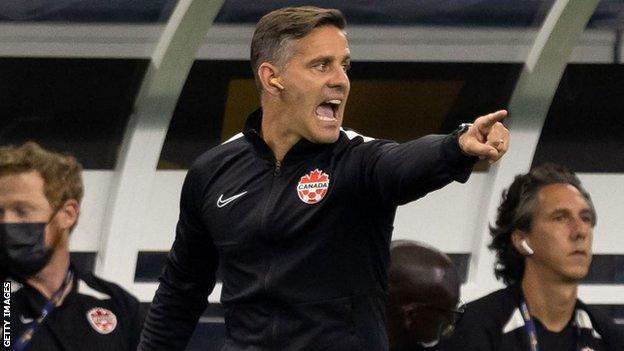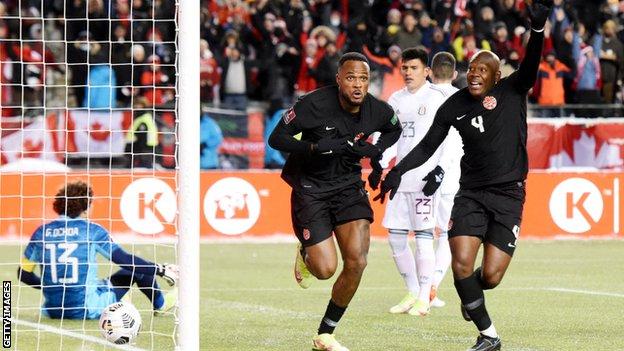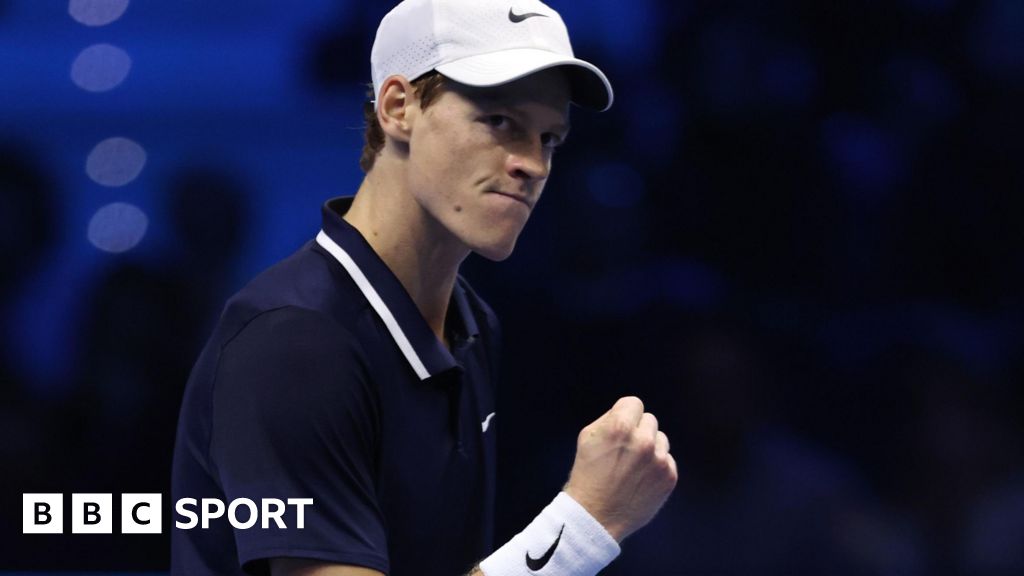ARTICLE AD BOX
 Former Sunderland academy coach John Herdman has taken Canada to the brink of World Cup qualification
Former Sunderland academy coach John Herdman has taken Canada to the brink of World Cup qualificationIn England, memories of the 1986 World Cup centre around Diego Maradona, the 'Hand of God' and the wonder goal he scored for Argentina in that quarter-final win en route to lifting the trophy.
Canadian memories of that tournament in Mexico are somewhat different.
Three games, no points, no goals. At least they got there, though, as 1986 remains the only time Canada have qualified for a World Cup.
That record should be improved in 2026, when it is anticipated, but not yet confirmed, their status as co-hosts will bring automatic qualification.
However, under the guidance of John Herdman, the English coach who led the Canadian women's team to successive bronze medal Olympic Games finishes in 2012 and 2016, the men's side are now on the brink of qualification for this year's finals in Qatar.
In the early hours of Friday morning UK time, they play in Honduras. They do so as leaders of the Concacaf qualification pool with six games remaining.
Canada are only two points in front of fourth-placed Panama, with regional heavyweights the United States and Mexico in between. Only three automatic qualification spots are available, plus a hazardous play-off, and star man Alphonso Davies is also missing.
"It is real now," Herdman told BBC Sport. "We are either going to be 'that team that did' or 'that team that blew it'."
'All the kids play football, that is the reality'
The loss of Davies, after the Bayern Munich defender was diagnosed with a heart problem, is a major blow.
But the rest of the Canada team that started the superb victory against Mexico in November, including Lille forward Jonathan David and Besiktas frontman Cyle Larin - who scored both goals in the 2-1 win - have all been named in a 25-man squad.
It underlines the growing strength of youth development in Canada - and the wider interest in football in a country that has traditionally focused on more established sports.
"Canada is a hockey nation, but football is the highest participation sport," said Herdman.
"All the kids play football, that is the reality. The country has a very diverse demographic. We have a lot of immigrants, including myself, whose first love is football.
"But they have not had a national team to rally around. The women's team has been uber successful but the men's team hasn't broken that threshold.
"It is a sleeping giant. It is ready to put itself into the sporting consciousness of the genuine Canadian sports fan."
'A very resilient nation'
 Canada celebrate beating Mexico in Edmonton
Canada celebrate beating Mexico in EdmontonImages of Canada celebrating in the snow after their win over Mexico in Edmonton were memorable.
Herdman and his staff had already worked out that Concacaf's gruelling qualification schedule was not set up to help his team.
There are rounds of qualifiers, virtually all against opponents whose home conditions are markedly different to the ones Canada are used to.
"In Haiti, in June, it was 37 degrees," added Herdman. "People's boots were melting on the rubber on the plastic turf.
"There are moments in those games where the opportunity to check out is there. The ability to say 'OK, we have an excuse, it is too hot'. The brain is always playing with that.
"It was time for our opponents to get that feeling."
So the Mexico game was played in Edmonton, where the temperature during the game was recorded at -9C and the snow fell beforehand - lots of it.
"We could have played in a more hospitable climate, maybe even in a closed, indoor stadium, but we were pretty clear this was a new Canada.
"It is a very resilient nation that has grown up having to play on plastic fields and in cold conditions. We looked at it as an opportunity."
Gruelling challenges in the heat - and the cold
Herdman expects conditions in Hamilton to be similar, when the United States visit on 30 January, for a game at which the capacity has been cut to 12,000 because of Covid-19 restrictions.
Either side are trips to Honduras and El Salvador, where the temperature will be around 30C.
"We have a bridge camp in Miami, 70% of the players are from Europe, the other 30%, the MLS players, have been out of season for three months," said Herdman.
"We will have two and a half days of preparation in Miami, we get on a flight to Honduras, have one day to prepare in Honduras and play the match.
"The next morning we are on a flight to Canada, which is a five-hour flight across two time zones and go from playing in 30 degrees down to -12. After the game against the USA we are back on a plane and fly all the way back into Central America to play El Salvador in heat again.
"When people say 'why haven't Canada qualified?' you can see the challenges of managing the Concacaf window. Three games in seven days and thousands of miles of travelling to get those games done."
The chip on the shoulder that drives him on
It is more than 20 years since Herdman, born in Consett in County Durham, left his job at Sunderland's academy to take over the New Zealand women's team.
The decision has worked, to the extent that the 46-year-old would be an attractive proposition for a coaching role if he decided to return to his homeland.
It is a conversation he skirts around, secure in the knowledge his contract with the Canadian FA does not expire until after the 2026 World Cup.
"There was a massive motivator at the time, when you haven't made it as a professional footballer," he said. "You always have that chip on your shoulder.
"I didn't play at the highest level and, in my earliest years in coaching, that was relayed to me quite frequently. It develops a mentality of working harder to prove you are at that level.
"But when people ask what my aspirations are, it is to win the next matches against Honduras, USA, El Salvador, and get this team qualified."
Alphonso the 'influencer'
Davies' absence in this camp is being felt, but overall, Herdman refers to the 21-year-old as a "generational talent", capable of transporting Canadian soccer out of a niche environment and into mainstream society.
"He is an influencer, not only through what he has done on the field but through his social media presence," said Herdman.
"I have an 11-year-old daughter who is obsessed with what he is doing on Tik-Tok. She has never had an interest in soccer all the way through her time in Canada.
"We have got a demographic of fans that have been through the 30 years of hurt. They are waiting for us to slip up and say 'we told you so'.
"But we also have a generation of fans for whom this is genuinely new.
"The hardcore fans are there setting the tone but the sports fans are the future now. They are going to fall in love with this sport."

- Amazing ways to overcome road rage: Enter the happy place of Zen Motoring
- Awkward questions and emotional confrontations: Meeting your ex for dinner - what could go wrong?


 2 years ago
24
2 years ago
24








 English (US)
English (US)